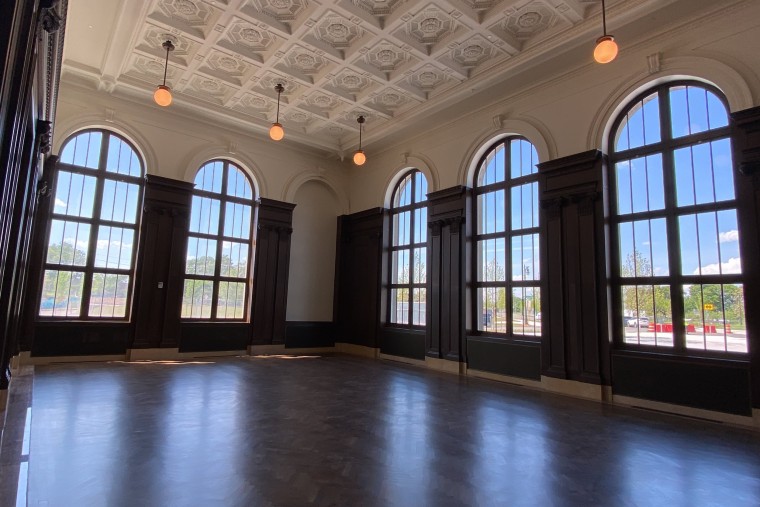The historic Michigan Central Station in Detroit, a train station that has stood for over a century, has been restored and transformed into Ford’s new tech campus. This ambitious project marks a significant milestone in the revitalization and rejuvenation of the city of Detroit. With an investment of $950 million, the transformation of the Michigan Central Station is a testament to the dedication and commitment of both Ford and the city of Detroit to embrace innovation and progress.
Upon entering the newly restored train station, visitors are greeted with a blend of old-world charm and cutting-edge technology. The grandeur and architectural beauty of the station’s historic design have been lovingly preserved, paying homage to its rich heritage. At the same time, the interior has been meticulously modernized to meet the demands of a contemporary tech campus. The juxtaposition of old and new creates a unique and inspiring atmosphere that sets the tone for innovation and creativity.
The tech campus within the Michigan Central Station is not only a physical space but also a hub of collaboration and advancement. Ford’s vision for the campus is to create a dynamic and inclusive work environment that fosters creativity, ideation, and problem-solving. By bringing together a diverse community of professionals, entrepreneurs, and visionaries, the tech campus serves as a melting pot of ideas and expertise.
One of the key highlights of Ford’s new tech campus is its commitment to sustainable and green practices. The campus has been designed with sustainability in mind, incorporating energy-efficient systems, green spaces, and eco-friendly materials. By prioritizing sustainability, Ford is not only reducing its environmental footprint but also setting an example for other corporations to follow suit.
Technology is at the core of Ford’s new tech campus, with state-of-the-art facilities and infrastructure that support cutting-edge research and development. From advanced laboratories to collaborative workspaces, the campus is equipped with the latest technologies to drive innovation and accelerate progress. Additionally, Ford has partnered with local universities and research institutions to create a network of knowledge exchange and collaboration, further enhancing the campus’s potential for groundbreaking discoveries.
In conclusion, the transformation of the Michigan Central Station into Ford’s new tech campus represents a significant milestone in the ongoing revitalization of Detroit. By preserving the historic landmark while embracing innovation and progress, Ford has set a new standard for corporate responsibility and community engagement. The tech campus serves as a beacon of inspiration and possibility, bringing together diverse talents and expertise to drive positive change and shape the future of mobility. As Detroit continues to evolve and thrive, Ford’s commitment to the city serves as a shining example of what is possible when heritage and innovation come together in harmony.


































